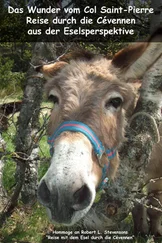Bernardin de Saint-Pierre - Paul and Virginia
Здесь есть возможность читать онлайн «Bernardin de Saint-Pierre - Paul and Virginia» — ознакомительный отрывок электронной книги совершенно бесплатно, а после прочтения отрывка купить полную версию. В некоторых случаях можно слушать аудио, скачать через торрент в формате fb2 и присутствует краткое содержание. Жанр: unrecognised, на английском языке. Описание произведения, (предисловие) а так же отзывы посетителей доступны на портале библиотеки ЛибКат.
- Название:Paul and Virginia
- Автор:
- Жанр:
- Год:неизвестен
- ISBN:нет данных
- Рейтинг книги:5 / 5. Голосов: 1
-
Избранное:Добавить в избранное
- Отзывы:
-
Ваша оценка:
- 100
- 1
- 2
- 3
- 4
- 5
Paul and Virginia: краткое содержание, описание и аннотация
Предлагаем к чтению аннотацию, описание, краткое содержание или предисловие (зависит от того, что написал сам автор книги «Paul and Virginia»). Если вы не нашли необходимую информацию о книге — напишите в комментариях, мы постараемся отыскать её.
Paul and Virginia — читать онлайн ознакомительный отрывок
Ниже представлен текст книги, разбитый по страницам. Система сохранения места последней прочитанной страницы, позволяет с удобством читать онлайн бесплатно книгу «Paul and Virginia», без необходимости каждый раз заново искать на чём Вы остановились. Поставьте закладку, и сможете в любой момент перейти на страницу, на которой закончили чтение.
Интервал:
Закладка:
Madame de la Tour, followed by her negro woman, came to this spot, where she found Margaret engaged in suckling her child. Soothed and charmed by the sight of a person in a situation somewhat similar to her own, Madame de la Tour related, in a few words, her past condition and her present wants. Margaret was deeply affected by the recital; and more anxious to merit confidence than to create esteem, she confessed without disguise, the errors of which she had been guilty. "As for me," said she, "I deserve my fate: but you, madam—you! at once virtuous and unhappy"—and, sobbing, she offered Madame de la Tour both her hut and her friendship. That lady, affected by this tender reception, pressed her in her arms, and exclaimed,—"Ah surely Heaven has put an end to my misfortunes, since it inspires you, to whom I am a stranger, with more goodness towards me than I have ever experienced from my own relations!"
I was acquainted with Margaret: and, although my habitation is a league and a half from hence, in the woods behind that sloping mountain, I considered myself as her neighbour. In the cities of Europe, a street, even a simple wall, frequently prevents members of the same family from meeting for years; but in new colonies we consider those persons as neighbours from whom we are divided only by woods and mountains; and above all at that period, when this island had little intercourse with the Indies, vicinity alone gave a claim to friendship, and hospitality towards strangers seemed less a duty than a pleasure. No sooner was I informed that Margaret had found a companion, than I hastened to her, in the hope of being useful to my neighbour and her guest. I found Madame de la Tour possessed of all those melancholy graces which, by blending sympathy with admiration give to beauty additional power. Her countenance was interesting, expressive at once of dignity and dejection. She appeared to be in the last stage of her pregnancy. I told the two friends that for the future interests of their children, and to prevent the intrusion of any other settler, they had better divide between them the property of this wild, sequestered valley, which is nearly twenty acres in extent. They confided that task to me, and I marked out two equal portions of land. One included the higher part of this enclosure, from the cloudy pinnacle of that rock, whence springs the river of Fan-Palms, to that precipitous cleft which you see on the summit of the mountain, and which, from its resemblance in form to the battlement of a fortress, is called the Embrasure. It is difficult to find a path along this wild portion of the enclosure, the soil of which is encumbered with fragments of rock, or worn into channels formed by torrents; yet it produces noble trees, and innumerable springs and rivulets. The other portion of land comprised the plain extending along the banks of the river of Fan-Palms, to the opening where we are now seated, whence the river takes its course between these two hills, until it falls into the sea. You may still trace the vestiges of some meadow land; and this part of the common is less rugged, but not more valuable than the other; since in the rainy season it becomes marshy, and in dry weather is so hard and unyielding, that it will almost resist the stroke of the pickaxe. When I had thus divided the property, I persuaded my neighbours to draw lots for their respective possessions. The higher portion of land, containing the source of the river of Fan-Palms, became the property of Madame de la Tour; the lower, comprising the plain on the banks of the river, was allotted to Margaret; and each seemed satisfied with her share. They entreated me to place their habitations together, that they might at all times enjoy the soothing intercourse of friendship, and the consolation of mutual kind offices. Margaret's cottage was situated near the centre of the valley, and just on the boundary of her own plantation. Close to that spot I built another cottage for the residence of Madame de la Tour; and thus the two friends, while they possessed all the advantages of neighbourhood lived on their own property. I myself cut palisades from the mountain, and brought leaves of fan-palms from the sea-shore in order to construct those two cottages, of which you can now discern neither the entrance nor the roof. Yet, alas! there still remains but too many traces for my remembrance! Time, which so rapidly destroys the proud monuments of empires, seems in this desert to spare those of friendship, as if to perpetuate my regrets to the last hour of my existence.
As soon as the second cottage was finished, Madame de la Tour was delivered of a girl. I had been the godfather of Margaret's child, who was christened by the name of Paul. Madame de la Tour desired me to perform the same office for her child also, together with her friend, who gave her the name of Virginia. "She will be virtuous," cried Margaret, "and she will be happy. I have only known misfortune by wandering from virtue."
About the time Madame de la Tour recovered, these two little estates had already begun to yield some produce, perhaps in a small degree owing to the care which I occasionally bestowed on their improvement, but far more to the indefatigable labours of the two slaves. Margaret's slave, who was called Domingo, was still healthy and robust, though advanced in years: he possessed some knowledge, and a good natural understanding. He cultivated indiscriminately, on both plantations, the spots of ground that seemed most fertile, and sowed whatever grain he thought most congenial to each particular soil. Where the ground was poor, he strewed maize; where it was most fruitful, he planted wheat; and rice in such spots as were marshy. He threw the seeds of gourds and cucumbers at the foot of the rocks, which they loved to climb and decorate with their luxuriant foliage. In dry spots he cultivated the sweet potatoe; the cotton-tree flourished upon the heights, and the sugar-cane grew in the clayey soil. He reared some plants of coffee on the hills, where the grain, although small, is excellent. His plantain-trees, which spread their grateful shade on the banks of the river, and encircled the cottages, yielded fruit throughout the year. And lastly, Domingo, to soothe his cares, cultivated a few plants of tobacco. Sometimes he was employed in cutting wood for firing from the mountain, sometimes in hewing pieces of rock within the enclosure, in order to level the paths. The zeal which inspired him enabled him to perform all these labours with intelligence and activity. He was much attached to Margaret, and not less to Madame de la Tour, whose negro woman, Mary, he had married on the birth of Virginia; and he was passionately fond of his wife. Mary was born at Madagascar, and had there acquired the knowledge of some useful arts. She could weave baskets, and a sort of stuff, with long grass that grows in the woods. She was active, cleanly, and, above all, faithful. It was her care to prepare their meals, to rear the poultry, and go sometimes to Port Louis, to sell the superfluous produce of these little plantations, which was not however, very considerable. If you add to the personages already mentioned two goats, which were brought up with the children, and a great dog, which kept watch at night, you will have a complete idea of the household, as well as of the productions of these two little farms.
Madame de la Tour and her friend were constantly employed in spinning cotton for the use of their families. Destitute of everything which their own industry could not supply, at home they went bare-footed: shoes were a convenience reserved for Sunday, on which day, at an early hour, they attended mass at the church of the Shaddock Grove, which you see yonder. That church was more distant from their homes than Port Louis; but they seldom visited the town, lest they should be treated with contempt on account of their dress, which consisted simply of the coarse blue linen of Bengal, usually worn by slaves. But is there, in that external deference which fortune commands, a compensation for domestic happiness? If these interesting women had something to suffer from the world, their homes on that very account became more dear to them. No sooner did Mary and Domingo, from this elevated spot, perceive their mistresses on the road of the Shaddock Grove, than they flew to the foot of the mountain in order to help them to ascend. They discerned in the looks of their domestics the joy which their return excited. They found in their retreat neatness, independence, all the blessings which are the recompense of toil, and they received the zealous services which spring from affection. United by the tie of similar wants, and the sympathy of similar misfortunes, they gave each other the tender names of companion, friend, sister. They had but one will, one interest, one table. All their possessions were in common. And if sometimes a passion more ardent than friendship awakened in their hearts the pang of unavailing anguish, a pure religion, united with chaste manners, drew their affections towards another life: as the trembling flame rises towards heaven, when it no longer finds any ailment on earth.
Читать дальшеИнтервал:
Закладка:
Похожие книги на «Paul and Virginia»
Представляем Вашему вниманию похожие книги на «Paul and Virginia» списком для выбора. Мы отобрали схожую по названию и смыслу литературу в надежде предоставить читателям больше вариантов отыскать новые, интересные, ещё непрочитанные произведения.
Обсуждение, отзывы о книге «Paul and Virginia» и просто собственные мнения читателей. Оставьте ваши комментарии, напишите, что Вы думаете о произведении, его смысле или главных героях. Укажите что конкретно понравилось, а что нет, и почему Вы так считаете.












